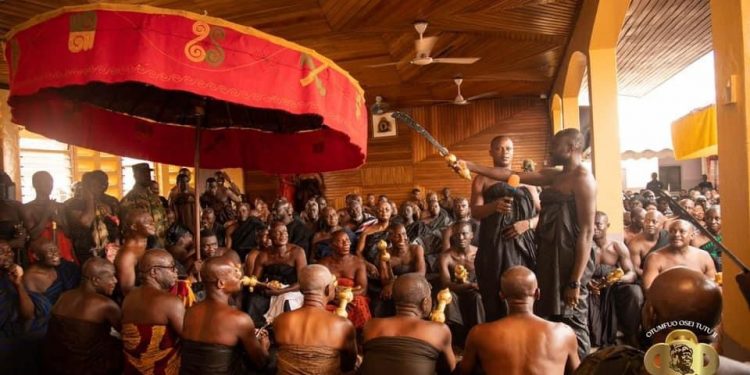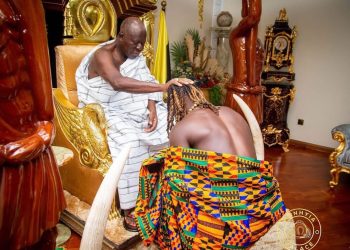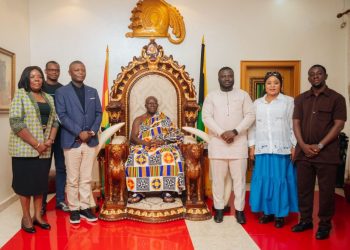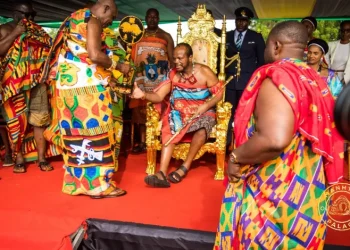In a traditional ceremony at the Manhyia Palace, a significant appointment was made as Nana Kwame Amo was installed as the new Otumfuo Tromoo Akwasi Hene, the esteemed traditional bodyguard of the Asantehene.
Formerly known in private life as Sledge Bonnah, Nana Kwame Amo now assumes a pivotal role deeply rooted in Asante history.
The Otumfuo Tromoo Akwasi Hene position, dating back to the inception of the Asante kingdom, carries immense cultural and symbolic importance.
Central to this role is the Tromoo Akwasi gun, aptly named after the myth surrounding the trɔmo, carefully chosen by Otumfoɔ Opoku Ware II as the abɔsodeɛ (foundation) for this revered firearm.
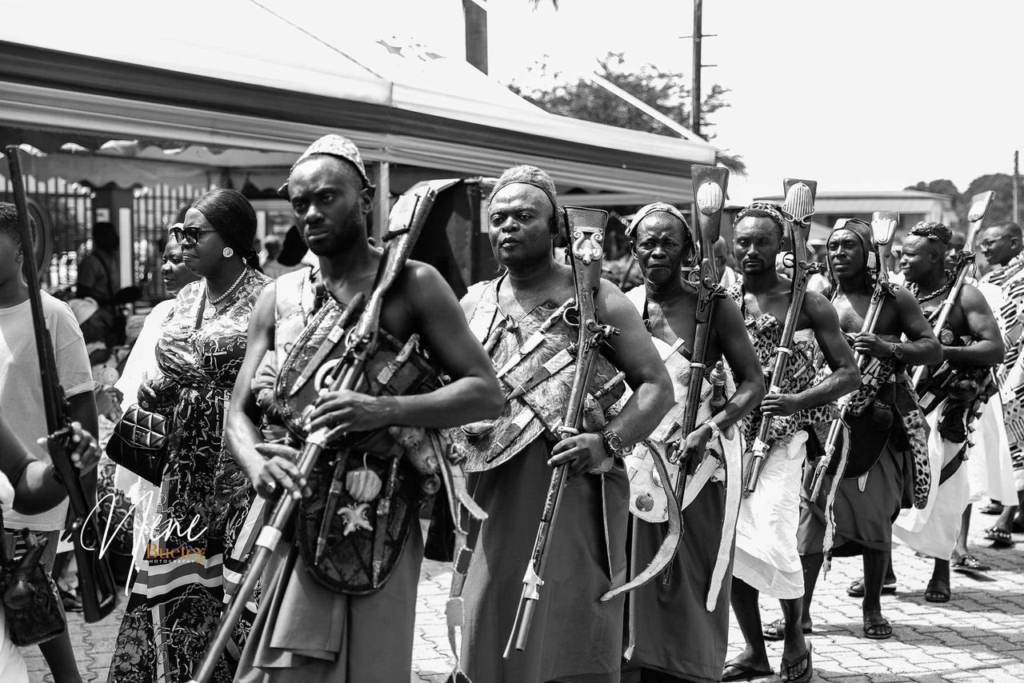
Unique to the Tromoo Akwasi gun is the utilisation of abadayɛ, the foetus of trɔmo, for its ntoa.
This choice symbolises the intricate connection between Asante traditions and the spiritual significance embedded within their regalia.
During ceremonial processions, the gun-bearers meticulously carry their firearms, demonstrating respect and adherence to ceremonial protocols.
Notably, during the “trane” ritual, where a newly enstooled king affirms his readiness to defend Asanteman, the doku agyapɔmaa (gun) is fired three times, symbolising a profound commitment to protect the kingdom.
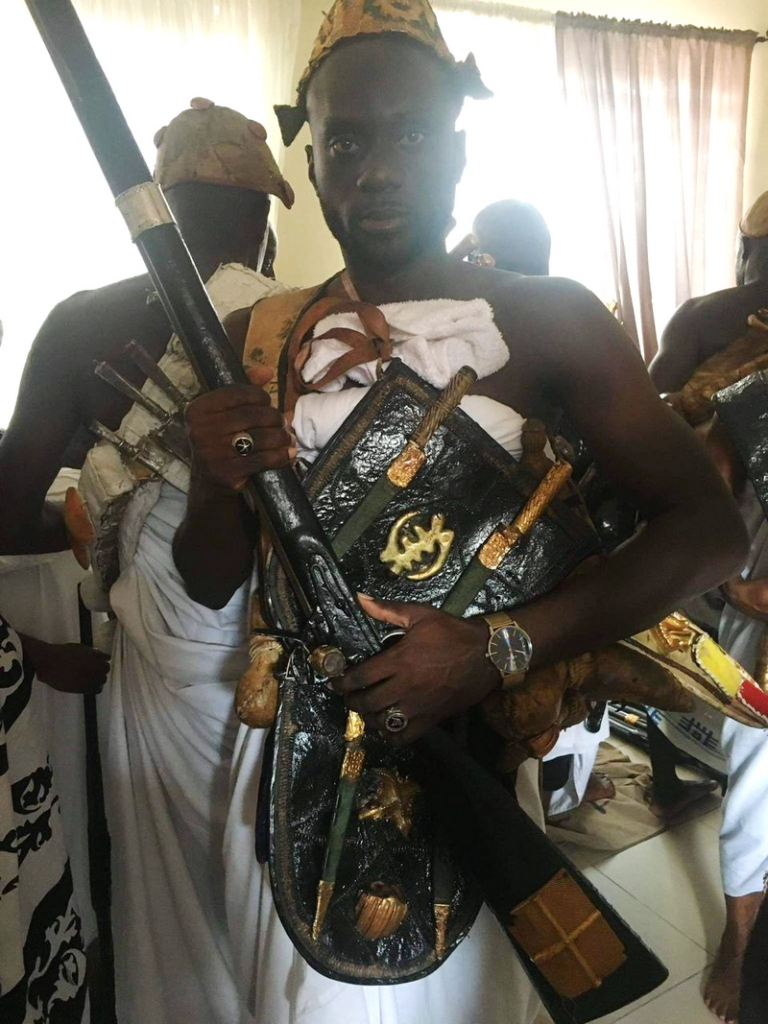
Nana Kwame Amo’s lineage adds a layer of historical depth to his appointment. His late grandfather, who previously held this esteemed position, was not only the Asantehene’s father but also the elder brother of Otumfuo’s father.
This familial connection underscores the traditional practices surrounding succession within the Asante kingdom.
Before officially assuming his role, Nana Kwame Amo underwent the sacred “som kahyire” rite at the revered “Akrafie so” within the Manhyia Palace.
This private ritual, conducted by the Asantehene himself, served to educate Nana Kwame Amo about the potent powers and responsibilities associated with the Tromoo Akwasi regalia.
Beyond his ceremonial duties, Nana Kwame Amo upholds dietary restrictions akin to those of the Asantehene.
His adherence to cultural norms further solidifies his commitment to preserving and honouring Asante traditions in all aspects of his life.
source: My Joy Online





































